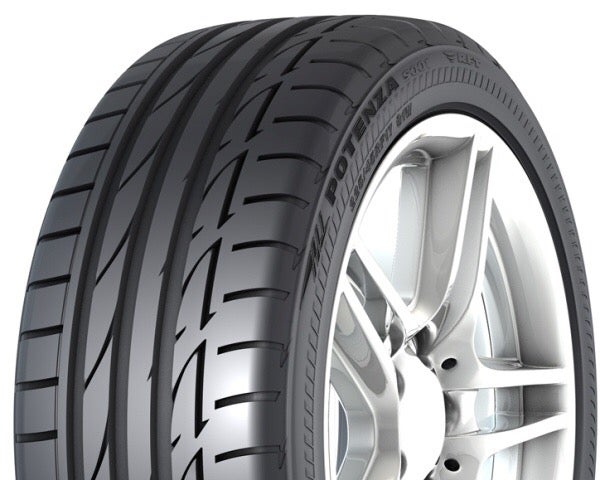 "BadMotorScooter" (badmotorscooter)
"BadMotorScooter" (badmotorscooter)
01/01/2018 at 16:10 ē Filed to: None
 0
0
 6
6
 "BadMotorScooter" (badmotorscooter)
"BadMotorScooter" (badmotorscooter)
01/01/2018 at 16:10 ē Filed to: None |  0 0
|  6 6 |
With much of the eastern half of the US in record cold conditions (it is 0F/-18C as I write this) I got to wondering about summer tires in the cold. Most summer rated performance tires state that they are to be used only above 40F. The tire compounds that give them good stickiness on warm tarmac turn to rock hard bricks in cold temps and donít have much traction.
Now, I have had occasions where Iíve needed to drive a performance car with summer performance tires in cold and dry conditions. I managed to survive but it was clear traction was way down. I think it would be almost undriveable in any frozen precip.
But can driving summer tires in cold or extreme cold actually damage the tire? I have heard that cold temps can permanently change the chemical composition of the summer tread compound (freezing and thawing). Iím not sure if this is true though. I see many performance cars that are issued with summer rated tires as factory equipment (some AWD cars come to mind) driving in extreme cold and I seriously doubt the owners have switched to all seasons or winter tires.
 Highlander-Datsuns are Forever
> BadMotorScooter
Highlander-Datsuns are Forever
> BadMotorScooter
01/01/2018 at 16:48 |
|
I donít think you are going to harm the tires. There may be some damage to them when you slide off the toad tho.
 AM3R, lost another burner
> BadMotorScooter
AM3R, lost another burner
> BadMotorScooter
01/01/2018 at 17:03 |
|
My 335i has wide summer performance tires on it and Iíve been fine here in the DC area. The other day we got a dusting of snow and, sure, the car slid around a little bit on hills, but it was far from undrivable. You just have to drive carefully.
 Recovering Gaijin
> BadMotorScooter
Recovering Gaijin
> BadMotorScooter
01/01/2018 at 17:19 |
|
I can kind of see a possibility there. Like thermoset plastic forms permanent molecular bonds as it cools from liquid to solid (effectively Ďfreezing Ď, right?), is there a temperature at which the physical structure of the rubber changes such that it >wonít< revert back when warmed past that point again?
Iím no chemist and know squat about how rubber is structured. My pulled-outa-my-arse guess is, no: vulcanization set the bondís structure and that wonít change. I do know who to ask as we sometimes do work at the local Yokohama plant, but I bet someone here can authoritatively answer much more quickly.
 tromoly
> Recovering Gaijin
tromoly
> Recovering Gaijin
01/01/2018 at 17:35 |
|
Youíve got the right idea, the glass transition temperature is what youíre describing. Above this temp the material is flexible and flows, below and itís rigid. Think rubber and plexiglass at room temperature, respectively. Doesnít change the molecular construction, but does change its properties.
Fun fact, those annoying vinyl record bowls that everyone thought were cool a decade ago are made by heating the record above its glass transition temperature so it flows, then letting it sink into a bowl to form its shape then cooled so it becomes rigid again.

 PWRandSPD
> BadMotorScooter
PWRandSPD
> BadMotorScooter
01/01/2018 at 18:56 |
|
Way back when I had an STI, it came from the factory with Summer performance tires. I can tell you with freezing temps and as little as a dusting of snow, the car was not able to hardly move on my level driveway.

Not made for snow, not in the least. My truck was much better suited for the snow.
 BadMotorScooter
> PWRandSPD
BadMotorScooter
> PWRandSPD
01/01/2018 at 23:32 |
|
Right, thatís really my point here and also wondering if driving summer performance tires in extreme cold could possibly damage them. Iíve driven summer performance tires in cold and managed, but I also got caught in a dusting of snow and I couldnít manage a very small incline in a RWD car.
I think the AWD in a ďrallyĒ bred car gives a false sense of security sometimes. A WRX/STI with summers driving in the cold/snow isnít much better than a Corvette or Focus ST with summers. Iím a little surprised this isnít more of a concern in areas that see cold temps and possible freezing precip. I think manufacturers are chasing car mag numbers and need to use performance tires to get the numbers, but unless you live in the deep south or CA you may need to switch to all seasons or winters to be safe.